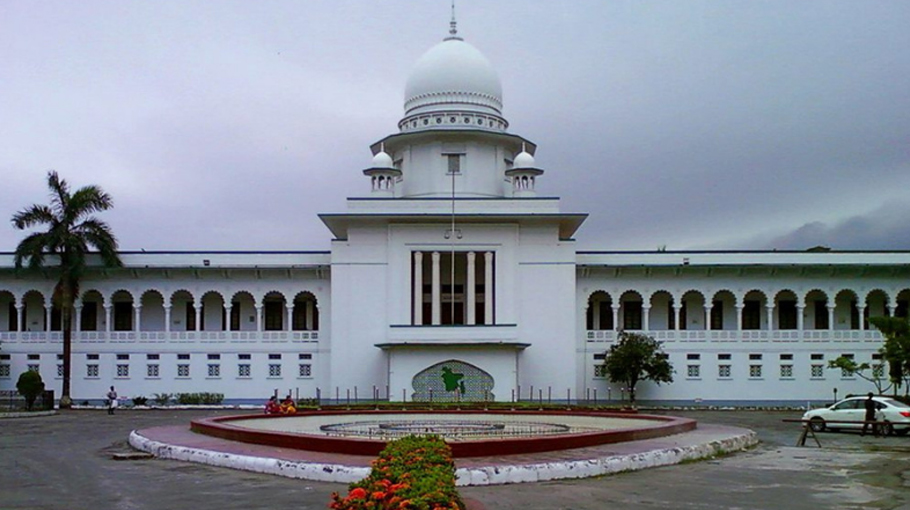HC for Bangabandhu’s anti-graft speeches on syllabi

The High Court has issued a rule on incorporating the anti-graft and anti-money laundering speeches of Father of the Nation Bangabandhu Sheikh Mujibur Rahman on the syllabus of educational institutions and training centres in the country.
The HC bench of Justices Md Nazrul Islam Talukder and Shawkat Ali Chowdhury issued the suo-moto rule while hearing a case regarding the missing of documents of 30,000 clients of Rajdhani Unnayan Kartripakkha (RAJUK) from its server.
The cabinet secretary, secretary of the education ministry, chairman of the Anti-Corruption Commission (ACC) and others concerned have been asked to respond to the rule.
At the same time, the High Court asked the ACC to consider the anti-corruption speeches of Bangabandhu Sheikh Mujibur Rahman as ideology while performing their duties.
The court also directed the Director General of the National Archives to submit Bangabandhu's anti-corruption statements to the High Court within a month. The next hearing on the rule will be held on June 4.
Deputy Attorney General AKM Amin Uddin Manik, ACC lawyer Md Khurshid Alam Khan, RAJUK lawyer Imam Hasan were present.
Before issuing the rule, the High Court asked the ACC to go on the hard line against corruption. “If you want to stop the corruption, you must go on the hard line. Corruption cannot be stopped by showing flexibility. A Nobel laureate says that South Asian countries have flexibility on corruption. You have to be strict against corruption,” said the HC bench.
Addressing the ACC lawyer, the High Court said that if you want to stop corruption, three points must be accepted. A strict system against corruption should be developed, while laws must be obeyed and enforced and be accountable to the people.
Pointing out that corruption cannot be stopped only with laws and regulations or judgments, the HC bench said, “First we have to obey our own laws and regulations. There should be transparency of what those entering the service are entering and exiting with. Everyone should be accountable.”
Highlighting Bangabandhu’s anti-corruption and anti-money laundering stance and speeches, the High Court said that if the country is to be made as Bangabandhu’s Sonar Bangla, we need golden people. Everyone has to play a role fin that.”
The speeches of Father of the Nation Bangabandhu Sheikh Mujibur Rahman are an invaluable asset for the present and future generations. In his speeches, Bangabandhu had given directions on how Bangladesh will run. His anti-corruption speeches will play a vital role in preventing corruption.
Bangabandhu Sheikh Mujibur Rahman identified corruption as the primary evil, hindering Bangladesh’s development. He identified corruption as the number one priority for a nascent Bangladesh even before the country was born.
Bangabandhu strongly condemned corruption and irregularities in several of his speeches during 1972-75.
With a view to building a corruption-free Bangladesh, he launched his campaign for the Second Revolution in 1975 which, with his brutal killing, came to an abrupt halt.
Bangabandhu addressed the last public meeting of his life on March 26 in 1975 at the Suhrawardy Udyan on the fourth anniversary of independence. The advertisement for that historic speech, which was published in the newspapers, mentioned that Bangabandhu would explain the ‘second revolution.’
In his speech, he indicated that a change in the system of governance was necessary to eradicate corruption.
In his address to young army officers on Bangladesh Military Academy premises in Cumilla Cantonment on January 11 in 1975, Bangabandhu declared his struggle against the corrupt and promised to win.
He said: “Our independence has cost us so much blood, but character has not changed much. Bribe-mongers, corrupt, black marketeers, thieves, and rent-seekers have made the lives of the distressed people unbearable. For three long years, I have requested, pleaded and threatened, but the devil would not listen to the scriptures. But no more.”
He also said, “I promise that if I can continue to struggle against the Pakistani oppressors Jinnah, Ghulam Mohammad, Chowdhury Mohammed Ali, Ayub Khan, Yahya Khan for twenty-five years, and If I can achieve independence for 75 million people, then can I not [root out corruption]? Surely I can, Insha’Allah. The smugglers, the extortionists, and the profiteers have to be eliminated from the soil of this Bengal. I make this promise, and you, the people of Bengal, make this promise.”
After returning to the country on January 10 in 1972, he said, “I want to tell employees, do not take bribes, not even a single person. Remember, it was an opportune moment then, but now I will not forgive bribes.”
In 1956, Bangabandhu became minister and declared his clear stand against corruption.
During a public meeting organized by Pirojpur Awami League at the Gopalakrishna Town Club in that year, Sheikh Mujibur Rahman said: “If there is corruption in any office or court and if anyone wants a bribe from you, immediately let me know by writing to me on a postcard, the price of which is about three paisa. I will take stern action against the corrupt people so that corruption will be stopped forever.”



